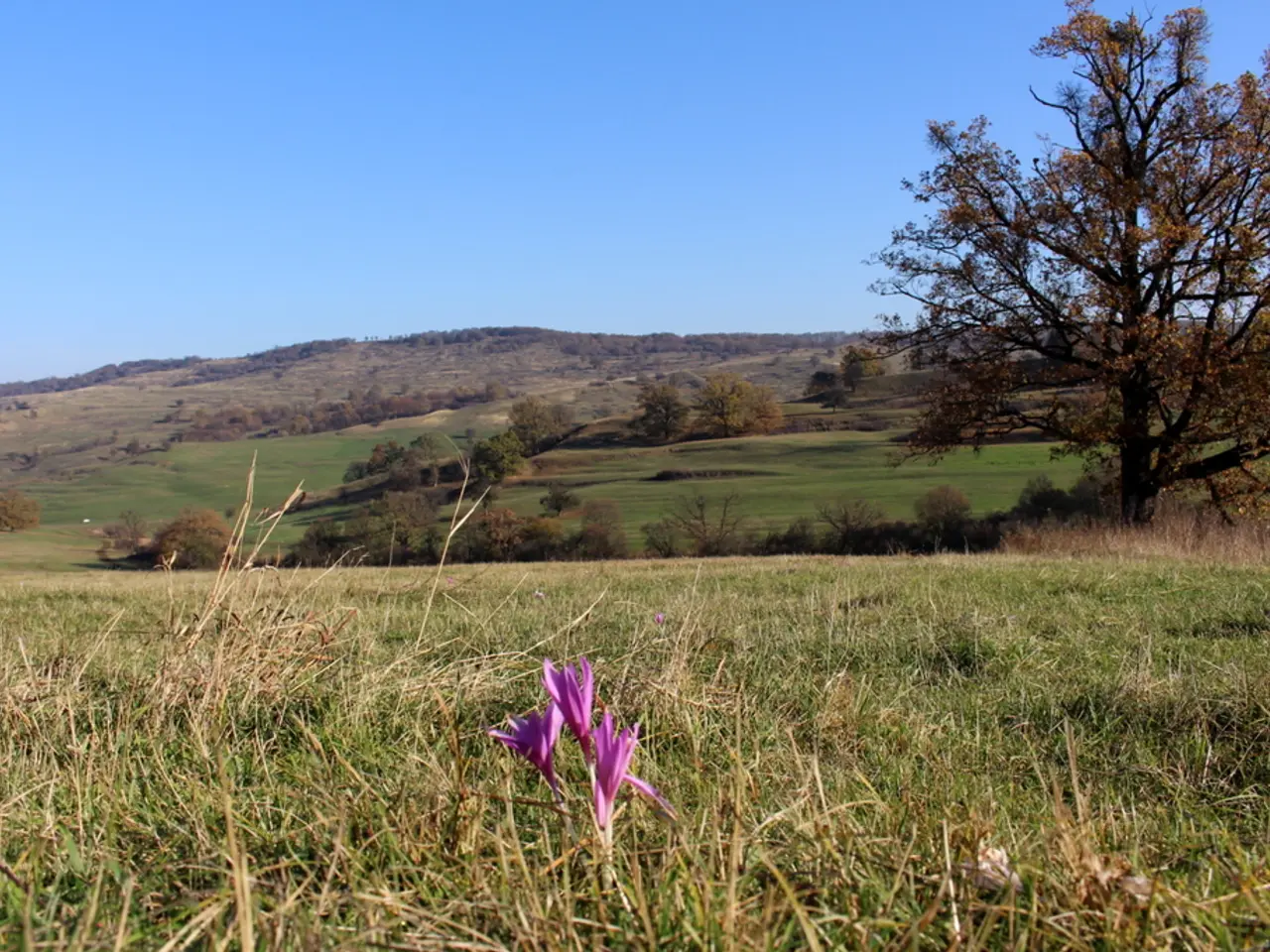Sustained Gardening Trends from the UK's Chelsea Flower Show that Every Green Thumb Should Embrace
Sustainable Trends Take Centre Stage at RHS Chelsea Flower Show 2024
The 2024 RHS Chelsea Flower Show showcased a plethora of sustainable trends, with a strong emphasis on creating gardens that are not only beautiful but also eco-friendly and supportive of local ecology.
A Focus on Pollinator-Friendly, Long-Lived, and Less Thirsty Plants
Many gardens at the show featured alternatives to traditional bedding plants, such as salvias, heather, dahlias, cosmos, and Verbena rigida. These plants, known for their ability to support wildlife and biodiversity, were a popular choice among exhibitors.
Locally Sourced Materials and Zero Waste Practices
Across the show, exhibitors took a sensitive approach to materials choice. Peat-free compost, minimal chemicals, no plastic, and locally sourced wood were the norm. Innovative compostable bamboo water pods and compostable, non-toxic floral foam alternatives made from corn were also used, reducing plastic use and waste.
Wildlife-Supportive Garden Features
Gardens at the show also incorporated wildlife-supportive features. Hedgehog-friendly fencing with specific ground-level gaps, FSC-certified timber, and fences integrated with native wildflowers and climbers were common. These features aimed to enhance pollinator habitats and promote biodiversity.
Vertical Gardening
Vertical gardening gained prominence at the show, particularly in urban environments. Wall-mounted planters and trellis systems that encourage biodiversity and efficient space use were popular, maximizing planting space sustainably.
Exemplary Show Gardens
The Garden of the Future celebrated single, pollinator-friendly flowers, while the mgr Changing Tides Garden featured storm-resilient plants and hand-sculpted ragstone boulders. The Flood Re: The Flood Resilient Garden offered a solution to flooding by integrating a central swale and dense planting. The National Garden Scheme Garden presented a palette of drought-tolerant woodland plants for clay soil prone to drying out.
Recycling and Reuse
Recycling and reuse were also key themes at the show. The WaterAid Garden highlighted the remarkable properties of alder trees, which can survive being submerged in water and absorb toxic heavy metals. RHS Chelsea Repurposed reused and recycled key elements from show gardens, including water features, seating, sculpture, and salvaged concrete and sand as a planting medium.
Tomie's Cuisine the Nobonsai Garden
Tomie's Cuisine the Nobonsai garden showcased a no-waste philosophy, using "dig and drop" composting and requiring minimal watering. The Eco Therapy Garden used lightweight, sustainable hypertufa for innovative containers, creating a more sustainable method of constructing a hardwearing planter.
Leading the Way in Sustainable Horticulture
Melanie Griffiths, an experienced gardener and media personality with over 20 years in the homes and gardens industry, was also present at the show. Her presence underscored the growing importance of sustainability in horticulture. The RHS Chelsea Flower Show received parliamentary recognition for sustainable displays, further emphasizing the show's commitment to sustainability.
In conclusion, the 2024 RHS Chelsea Flower Show demonstrated a clear commitment to sustainability, with a focus on pollinator-friendly, long-lived, and less thirsty plants, locally sourced materials, zero waste practices, wildlife-supportive garden features, vertical gardening, recycling, and reuse. These trends reflect a shift toward gardens designed to conserve water, support pollinators, reduce waste, and promote local ecology.
Gardening practices at the RHS Chelsea Flower Show 2024 highlighted the use of pollinator-friendly, long-lived, and water-efficient plants such as salvias, heather, dahlias, cosmos, and Verbena rigida to support wildlife and biodiversity.
Exhibitors prioritized sustainability by using locally sourced materials, adopting zero waste practices, and incorporating wildlife-supportive features, like hedgehog-friendly fencing and native wildflowers, to promote biodiversity and enhance pollinator habitats.




